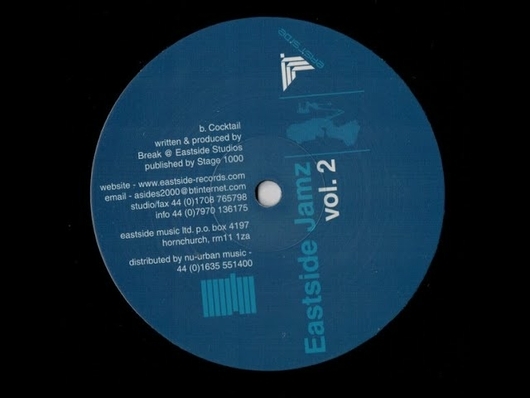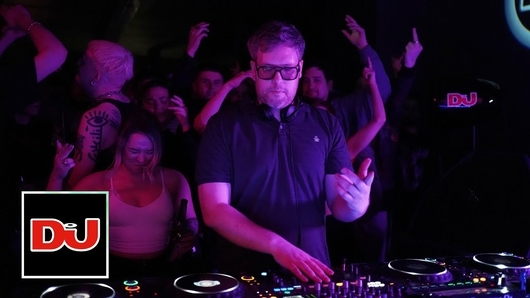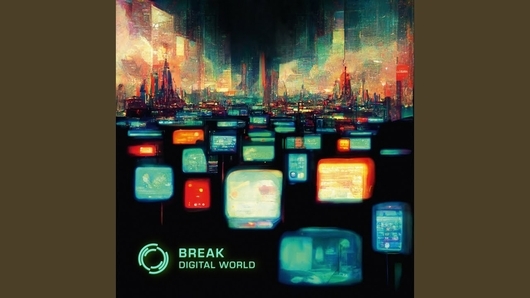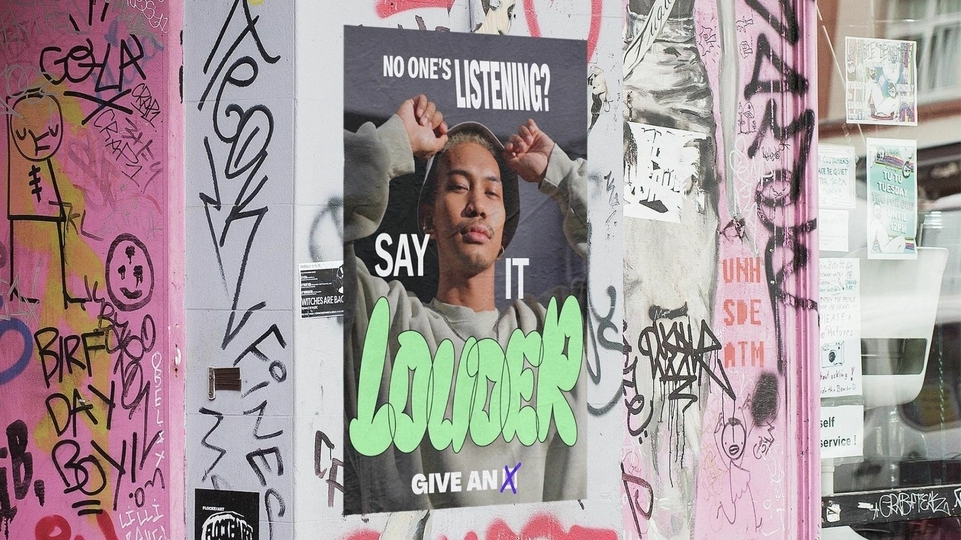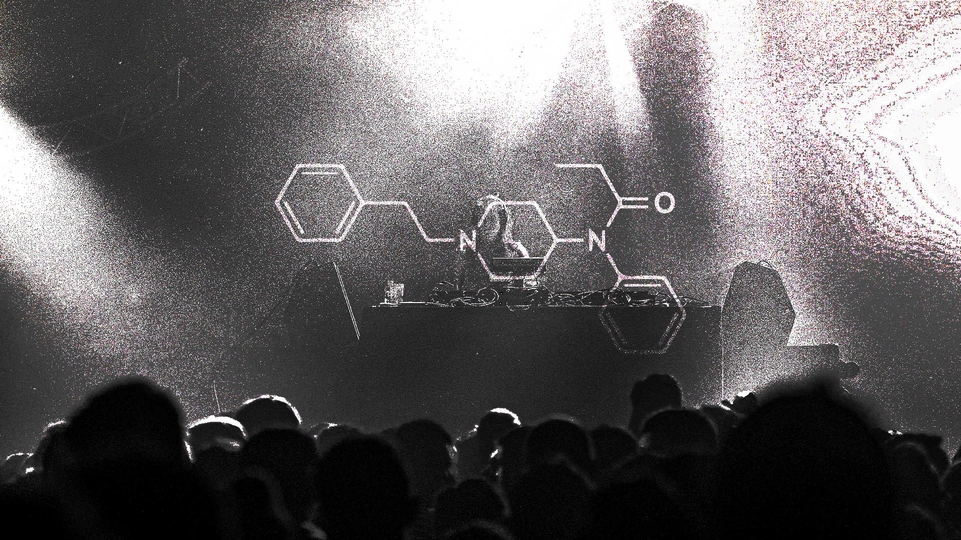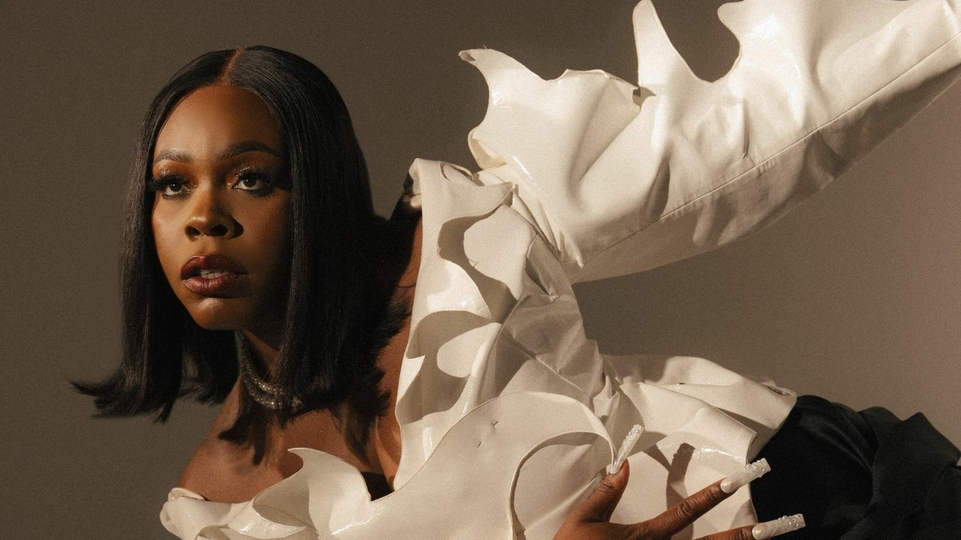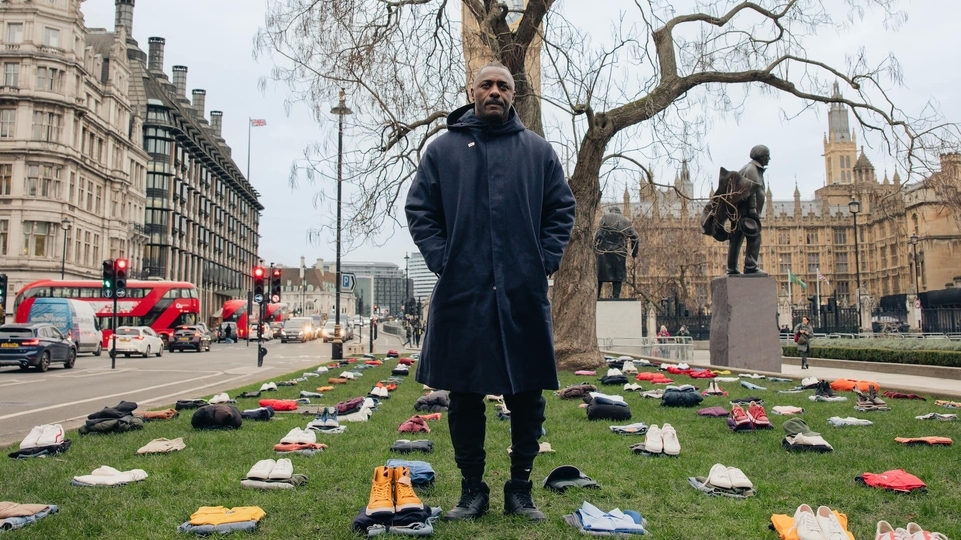
Break: digital soul
Drum & bass DJ and producer Break is an analogue soul in a digital world. Shunning social media, he’s nonetheless built a huge fan base with his mix of soulful elements, heavy low-end and tough breakbeats. Ben Hindle meets him ahead of his new album to learn about his love of sub-bass, why he feels vocal tracks have more impact, and why his friend and collaborator, the late, great MC Fats, is an irreplaceable loss to the d&b scene
It’s been 21 years since Charlie Bierman made his debut as Break. The appropriately titled ‘Cocktail’, released via A Sides’ Eastside Records, was a fizzy mix of junglistic drum edits, darkside stabs and glossy vocal clips that hurtled along at a lethal pace. A lot has changed in the time since. Break has gone from zero to hero. Today he’s a highly sought-after DJ, distinguished producer and head of the respected Symmetry label, who in May released his sixth studio album ‘Digital World’ and took over London’s XOYO for a month-long residency.
His sound has been refined into a signature blend of raw percussion, booming low-end, and vocal and instrumental additions that grip the heartstrings and don’t let go; it’s sparse but funky, techy but full of soul. It’s a sound that’s perfectly summed up in the lyrics to his new album’s title track: “Got soul in a digital world”. No matter how hi-spec and futuristic Break’s music gets, it never lacks a human touch. And the meaning goes deeper still; that sampled refrain feels even more poignant now than it must have done when Nashville’s DeRobert Adams originally sang it back in 2010.
In the years since, our lives have been evermore enveloped by screens and social media, particularly when the Covid pandemic made real-world interactions a health hazard. Artists have been swept up in the endless cycle of online promotion, having to weigh the benefits of potentially unlimited reach against the drain on time and energy that constantly having to update the feed can be.
This, however, is where Break stands out as something of a curiosity. Despite being one of the most in-demand drum & bass acts around, he’s not on social media. His Symmetry label does have accounts, but he has help running them. And he’s got no artist pages at all. Bierman’s dislike of social media is well documented, but it directly feeds into why he chose that sample, and what he wants to achieve with the new LP.
“It’s trying to keep some soulful element in that digital world, and not just do everything purely in a calculated, what the algorithm wants, what got the most views last weekend way,” he says. “It’s trying to be a little beacon of hope.”
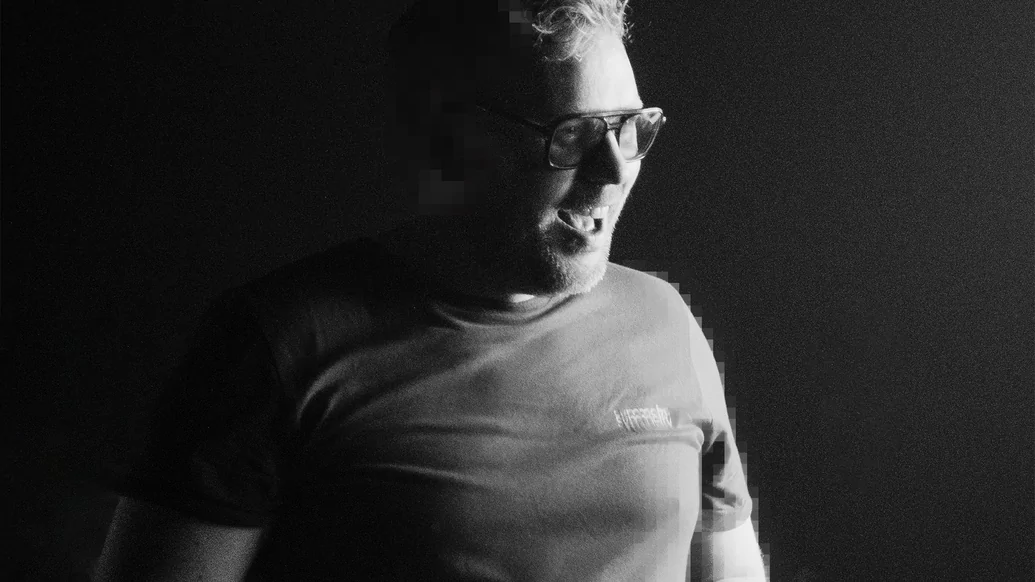
Bierman doesn’t bemoan anyone else for succumbing to social media — he understands it is a necessary evil now, and sees how for the young adults it’s “just part of life”. But as someone who came up at the same time as MySpace, Facebook and YouTube first launched, he’s part of the last generation of artists to break through without needing any social media presence.
“That's why I don’t gun people for doing it,” he says. “I’ve got younger mates now who say, ‘I’m not really into it either, but I've got no choice’. In a way, I was lucky to put tunes out and sort of make a name for myself before that became a thing. But it was still a massive pressure when there was a horrible era where people were putting Facebook follower numbers next to DJ names, and that was some sort of proof of what your fee or worth was for a booking. That was the stuff that really drove me against it.
“It’s a tough game where views or likes count for more than the actual music or artwork,” he continues. “But that ties back into the project title, and just trying to do your thing and hope it’s alright.
Break’s lack of online presence means he maintains an air of mystery that most other artists of his stature lost long ago. In person, he’s neither guarded or distant, but friendly and engaged. Yet his answers tend to be understated — he makes his point, but without much fuss — feeding into the vaguely enigmatic vibe. He’s hard to pin down musically too; while it’s easy to utilise adjectives like soulful, funky and heavyweight to describe Break’s sound, it would be impossible to tag him as a liquid or techstep or jump-up artist. He simply makes great drum & bass.
And when it comes to his affiliations, Break is something of an individualist. Symmetry, which launched in 2006, is still primarily an outlet for his own material, with a few V/A compilations, split EPs, and a handful of releases by the likes of Jack Boston, Ill Truth, Kyo and Villem thrown in for good measure. The label is home to all of his albums, from his 2008 debut, through iconic 2010 LP ‘Resistance’, to the retroist ‘Simpler Times’ and ‘Another Way’, the 2018 effort which more than any one release yet stamped him as a master of variety.
And while his prolific workrate has earned credits on a wide array of labels, from Critical Music, Metalheadz, and Soul:r to Dispatch, Commercial Suicide and Playaz, he wouldn’t be known as a staple member of any of those crews.
“I’ve always tried to be a free agent. And I’ve always said that to other producers who’ve been involved with Symmetry. I’m like, ‘I’m not going to do any exclusive deals, you should get tunes on other labels, get around the scene and don’t just put your eggs in one basket’,” he says. “I think it’s healthy, because... it’s that bit of variety. I want to have a tune on Soul:r, but I’d love to have a tune on Metalheadz. Why limit yourself to one thing?”
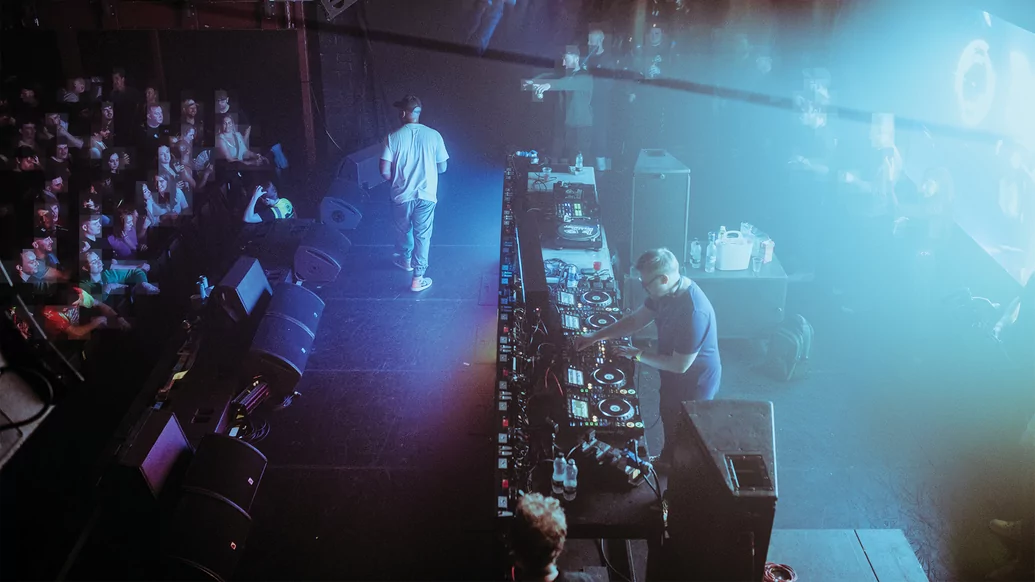
“It’s trying to keep some soulful element in that digital world, and not just do everything purely in a calculated, what the algorithm wants, what got the most views last weekend way. It’s trying to be a little beacon of hope.”
The only thing seemingly stopping Break going full ronin is his love of collaboration. Over the years he’s released celebrated team ups with Die, Total Science, DLR and numerous vocalists; if he is an island, he’s one with frequent visitors. ‘Digital World’, however, is Break’s first album without any production collabs. The bulk of its 12 tracks were put together in 2021 (with a few dating back to around the time of his 2020 ‘Dub Pack’ release), and they seem to reflect the feeling of release that came with the lifting of restrictions during that period. Though it sounds like an obvious statement for a drum & bass album, bass plays a colossal part. It’s raucous, hulking, incendiary bass — the kind that seems to have its own gravitational pull. From the chest-rattling subs of ‘Bury A Sound’ to the snarling synths of ‘Box Clever’ and ‘Headshot’, and distorted slabs on ‘Don’t You Ever Stop’, low-end dominates throughout.
“That was an aim,” admits Bierman. “These days, a lot of people look at spectrum analysers, which show you all the frequencies of the tracks. And if you look at jungle, it’s just sub and some top-end, and there’s a big gap in the middle — the smiley face curve is what it’s called — and you get that real subby, dubby sound. A lot of drum & bass has become the opposite of that; it’s all just mid-range and really not that subby.” Bierman places some of the blame on sound systems and event spaces that just aren’t built for bass, “so you need all these mid-rangey tunes to get any reaction out of people.
“But I think it’s also that people have worked out the mid-range sounds louder,” he continues. “So you can have a really loud-sounding tune, but it’s not actually heavy.” Either way, he’s pleased to see a pushback happening among some producers, and ‘Digital World’ is part of his own resistance. “That was kind of the foundation of the whole album: I want it to be subby; the main frequency is bass.”
Space for all that bass is created by sparse, deliberate drumwork. There are no extravagant arrangements or over-processed samples; each taut snare, crisp hat and pummelling kick feels organic and purposeful, bringing a classic tone to the grooves. “I did a lot of recording at home during the lockdown, where I wanted to replicate a lot of jungle breaks, and work out why they were so good. Because there’s about four or five breaks that just get absolutely rinsed in d&b, and when you really study them you’re like, ‘why was that one so lucky?’” says Bierman.
“So I tried to remake some of those classic breaks myself, either with recordings of tambourines and drum hits or just painstakingly, kind of trial-and-error layering up different things to end up with that flavour and groove of like a Sesame Street or Think break. So you hear a lot of breaks in that album that sound like the jungle breaks, but they’re not.”
Break’s trademark soul injection typically comes in the form of vocals — something ‘Digital World’ is not short of. Charli Brix’s delicate delivery on ‘Lost’ is a dream alongside Bierman’s Trilian-programmed bass slides; while Liam Bailey provides lush contrast to the glitchy microfunk arrangement of ‘Gotta Believe’ and a bassline that threatens to swallow ‘Gunshot Love’ whole. “I love vocals, and I often start an album and don’t have the vocalists lined up enough,” he admits. “This time... I did a lot more calling around people and trying to organise sessions before we started so that I’d have a really good selection of vocalists. Then you just end up with more memorable tracks that have got more of a message.”
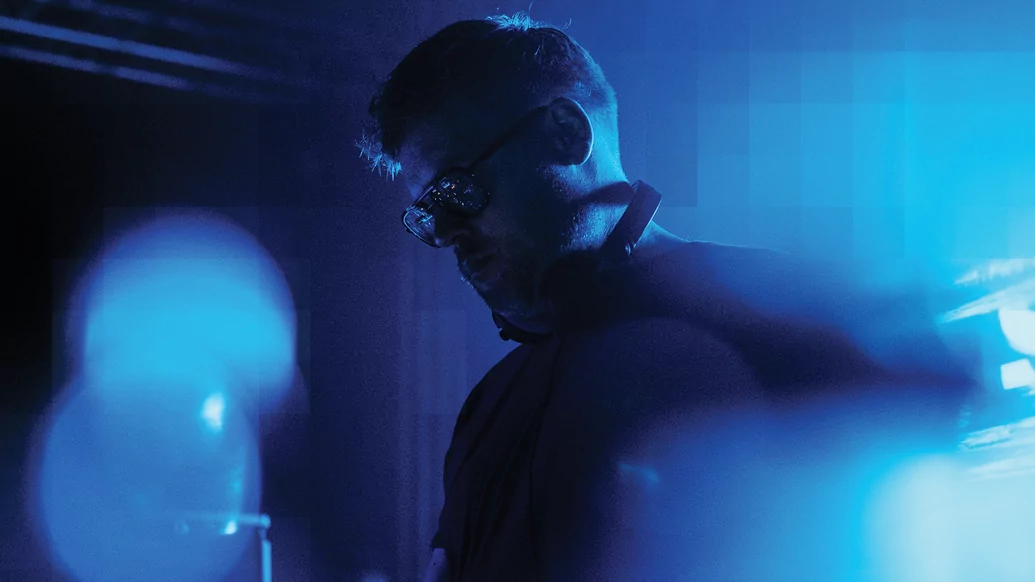
He talks about Manchester MC Fox coming down to his home studio in Bristol to record the gruff ‘Code Red’ — writing the lyrics in the garden before recording multiple layers “really seamlessly”. Lead single ‘Natural Way’, meanwhile, features the inimitable, velvet tones of MC Fats. “It’s a perfect intro tune, because there’s no real drums until the drop,” says Bierman. “I was opening with that for the whole year. That intro with the pads and his vocals is just a really nice mood setter. And then it’s like, ‘Bam!’, into the drop, and gets the party going. Fats smashed it on the vocal, and we were like, ‘Yeah, this is a winner’.”
Our interview with Break takes place in late February; on 10th March, news breaks that Fats has passed away. ”I did my very first gig abroad with Fats and A Sides,” Bierman says a few weeks later, when we call him to discuss the late, great vocalist. “Having my first releases with A Sides, I was lucky enough to meet Fats when I was 18. He was a hilarious character to travel with, and then to be on a club stage with him on the mic... He was always one of my favourites before I even met him, from tape packs, because he just stood out from all the other MCs with his singing voice.
“I think the first track I worked on with him was possibly the Alix Perez remix [2009’s ‘Down The Line’]. I’ve been lucky enough to do a handful of tracks with Fats, and the idea was always translating that vibe of what he did in the club onto the track, and he did that effortlessly — because that’s what he did.
“He had a lot of history with sound systems and reggae and dub, and I’m a big fan of that music, and he always brought that style into his d&b. He had a lot of knowledge and history from that culture, which is a massive part of drum & bass, but he did that in a way that no one can do.
“So yeah, he’s massively missed. I’m so grateful I got to work with him and hang out with him. And we spoke a lot on the phone. I’d always have long chats with him because he was always up for a chat. I think he’ll definitely live on strong throughout the music, because there’s so many good tracks he did. Rest in peace.”
‘Digital World’ isn’t Bierman’s only album of 2023. In February, he released the debut LP by The Degrees — one of two bands, the other being Degrees Of Freedom, that he has with his partner and singer Isha Campbell (also known as Kyo) — via Goldie’s Fallen Tree 1Hundred label. Dubbed ‘The Day Out Of Time’, the bulk of the recording was done back in 2020 at Rockfield Studios in Wales. It’s true neo soul, with funky jams like ‘Nothing Else’ and ‘Cold Feet’, and guitar-licked cuts that lean into R&B like ‘Nothing’, ‘Between The Rain’ and ‘Back Down’, set alongside the smoky, cinematic trip-hop of ‘Blinded’ and ‘No Escape’. Despite the obvious differences, it feels like a natural extension of Bierman’s work as Break thanks to its expert production, impressive bass weight and Campbell’s stirring delivery.
“It’s actually nice, because you’re kind of sick of it by the time you’ve finished it,” he laughs when we talk about how long the project has taken to finally see the light of day. “Then you’ve got to go through all the record label stuff, and that takes a while. And then we had singles out last year, which was kind of exciting, just to see it all starting to get out there. And now it’s actually really pleasant, like the icing on the cake, for it to finally come out. It’s almost like... rediscovering it in a way.”

'It’s actually nice, because you’re kind of sick of [a project] by the time you’ve finished it. Then you’ve got to go through all the record label stuff. And now it’s actually really pleasant, like the icing on the cake, for it to finally come out. It’s almost like... rediscovering it in a way.'
DJ Mag asks whether there are plans to tour as a band, but Bierman says while the potential is there for a laptop-plus-singer setup, or even working with the session musicians, it’s not something that’s on the cards at the moment. “The problem is we’re not 21 and like, ‘Yeah, let’s be a band!’ It’s quite hard with everybody, with their families and all that stuff, to get together to practise, but we’re just sort of seeing how it goes; it’s something we’d love to build up to.”
Following the release of the album, his focus shifted to his XOYO residency, which ran every Friday throughout May. After the DJ Mag HQ performance he delivers shortly after our interview, which has sweat literally dripping down the walls of our London office, a regular slot that allowed him to flex his tastes even more was an exciting prospect.
“It was a really cool opportunity to get offered, because like my agent said, it’s not really a Symmetry thing, it’s a Break thing,” says Bierman. “[I] tried to look at it as picking the people that have influenced and helped me, collabed with me, and there [was] a really good selection of people playing on all the nights that just mean a lot to me, musically and personally.”
That translated to iconic acts like Randall, Breakage, Skeptical and Total Science — regular collaborators with whom Break runs the XX label — featured MCs from ‘Digital World’ such as Fox and SP:MC, and rising stars like Sabrina and Symmetry artist Jack Boston. Closing with an all-night-long set, it’s the culmination of what Bierman, in his typically understated way, calls “a load of cool stuff coming together”. Who could ask for more than that?
